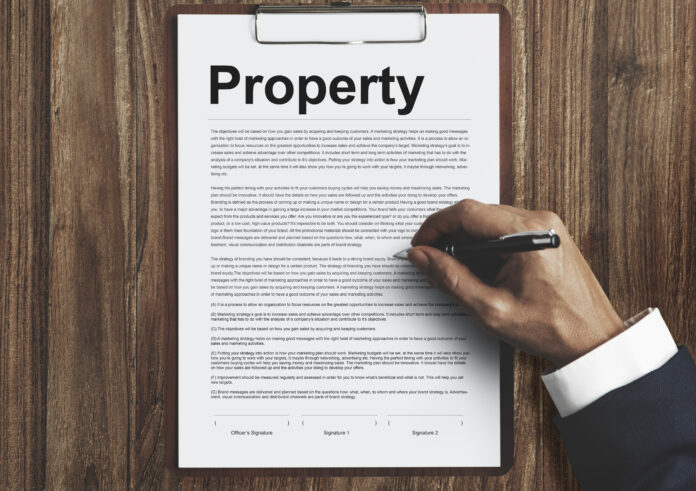Nigerians lose their hard-earned money every year simply because they’re unaware of the laws guiding property ownership. Even something as simple as failing to get the Governor’s Consent can render your land documents invalid. Ignorance of real estate laws doesn’t just cause delays or stress, it can cost you everything.
That’s why in this post, we’re breaking it all down. No legal jargon. No courtroom drama. Just a clear, simple explanation of the most important real estate laws in Nigeria that every buyer, seller, or investor should know. Whether you’re purchasing your first plot of land, renting out a property, or planning a long-term investment, this guide will help you stay protected and informed.
Introduction
Real estate is one of the most rewarding investments in Nigeria today—but it’s also one of the riskiest if you’re not well-informed. Many people enter into property deals without fully understanding the legal framework that governs land and housing in the country.
Nigeria’s real estate space isn’t just about cash and land—it’s backed by a series of laws that regulate how land is owned, bought, sold, developed, or leased. These laws are designed to protect all parties and ensure transparency and fairness. But sadly, many people don’t even know these laws exist—until something goes wrong.
In this blog, you’ll learn about the most important Nigerian real estate laws, explained in everyday language. Whether you’re a tenant in Lagos, a land buyer in Enugu, or a developer in Abuja, this guide is for you.
The Land Use Act of 1978
This is the foundation of land ownership in Nigeria. Before this law, land was mostly controlled by families and traditional rulers. But the Land Use Act of 1978 changed all that.
What it means for you:
- All land in Nigeria is owned by the government. Yes, even if you paid millions, you’re technically a tenant.
- You get a Right of Occupancy, not permanent ownership.
- To legally transfer land, lease it, or use it as collateral, you must get the Governor’s Consent.
- If you skip that consent, your transaction is considered invalid, and you could lose the land.
Never buy land without verifying the Right of Occupancy and ensuring the Governor’s Consent has been (or can be) obtained.
Federal Capital Territory Act of 1976
While Abuja falls under the Federal Capital Territory Act, in cities like Port Harcourt, land is managed under the Land Use Act of 1978, but with state-level application.
What it means for you:
- In Rivers State (including Port Harcourt), all land belongs to the state government, and the Governor holds it in trust for the people.
- That means every land you want to buy must have a Certificate of Occupancy (C of O) issued by the Rivers State Government or a Deed of Assignment that has been registered with the state.
- If you’re buying from an individual or community (like a family or “Omonile”), you must still regularize the title with the Rivers State Ministry of Lands.
- Without proper documentation, the government can revoke the land at any time.
When buying land in Port Harcourt, insist on seeing the title documents—C of O, Registered Survey Plan, and Deed of Assignment. Then, ensure the transaction is recorded at the Rivers State Land Registry. Always involve a professional to conduct due diligence before payment.
Stamp Duty Act
This law ensures that your property transaction is officially recorded by the government. The Stamp Duty Act requires buyers to pay a stamp duty fee before a transaction becomes legal.
What it means for you:
- Without paying stamp duty, your sale agreement or deed of assignment isn’t valid in court.
- The amount depends on the property’s value.
Always pay your stamp duty and collect a stamp duty certificate—it proves your transaction is legitimate.
Nigerian Urban and Regional Planning Act
This law guides how cities and towns should be developed. It controls zoning, building plans, and the type of development allowed in each area.
What it means for you:
- Before building, you must get planning approval or building permits.
- You can’t just turn a residential house into a shopping mall without permission.
- Building without approval can lead to demolition or fines.
Before developing a property, visit your local planning authority and ensure your building plan aligns with approved land use.
Mortgage and Property Law of Lagos State (2010)
Lagos is one of the few states with a specific law that addresses mortgages and property rights.
What it means for you:
- Makes it easier to access mortgage financing from banks or developers.
- Lays down clear rules for foreclosure, in case a borrower can’t repay the loan.
- Helps protect buyers from hidden charges and helps lenders recover their money legally.
If you’re buying property through a mortgage in Lagos, this law protects your rights as a buyer.
National Building Code (2006)
The National Building Code provides standards for construction safety and quality. It prevents shoddy buildings and promotes the structural integrity of homes and offices.
What it means for you:
- Your building must meet safety standards—especially regarding fire exits, wiring, and drainage.
- You need proper building permits and must follow construction guidelines.
- Ignoring this can lead to collapse, court cases, or loss of property.
Always work with licensed professionals and ensure your project is approved and inspected.
In Conclusion
Real estate in Nigeria isn’t just about buildings and land, it’s about understanding your rights, following the law, and protecting your investments. The legal framework is there to help you avoid fraud, secure your assets, and ensure peace of mind.
As you take your next step in Nigeria’s real estate market, whether as a buyer, investor, developer, or tenant, make sure you understand these laws. And when in doubt? Always consult a legal professional before making major real estate decisions.

